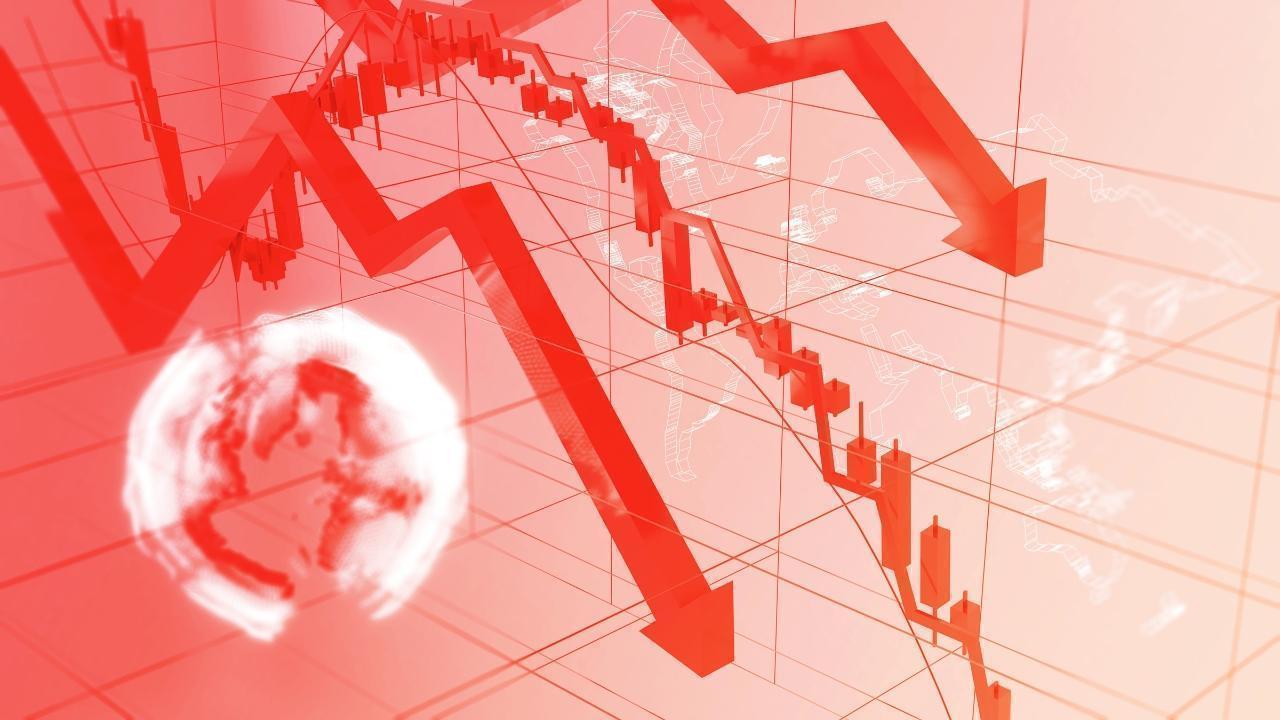You have not yet added any article to your bookmarks!

Join 10k+ people to get notified about new posts, news and tips.
Do not worry we don't spam!

Post by : Anis Farhan
The U.S. Federal Reserve’s latest decision to hold interest rates steady—despite inflationary pressures remaining above its 2% target—has sent a wave of uncertainty across global stock markets. Investors, analysts, and central banks are closely parsing the Fed’s hawkish tone, which suggested that rates could stay elevated longer than previously expected. While this decision may seem uneventful on the surface, its implications are significant and far-reaching, from Wall Street to emerging Asian markets.
Wall Street had a choppy reaction to the Fed’s announcement. The S&P 500 initially dipped, then clawed back losses, while the Dow Jones and Nasdaq showed similar instability. The Fed’s forecast revised down the number of expected rate cuts for the rest of the year, dampening investor optimism. The benchmark 10-year U.S. Treasury yield climbed above 4.3%, signaling tightening liquidity conditions ahead. For equity investors, this poses a challenge as corporate borrowing costs remain high, potentially affecting earnings in the upcoming quarters.
Asian markets felt the tremors immediately. Japan’s Nikkei dipped as the yen weakened further, triggering speculation about a potential intervention by the Bank of Japan. In South Korea, the KOSPI index edged lower, particularly in tech and banking sectors. Southeast Asian indices were mixed—Singapore’s Straits Times Index held steady thanks to defensive blue-chip support, while Indonesia and Malaysia saw moderate outflows from foreign investors.
The hawkish Fed stance also complicates monetary policy for regional central banks. Countries like Thailand and the Philippines, which have paused their own rate hikes to support domestic growth, may now face capital outflows if U.S. yields stay higher for longer.
The dollar index strengthened following the Fed’s signal, pushing currencies like the Indian rupee, Thai baht, and Malaysian ringgit lower. This has raised inflationary concerns in import-heavy economies. Gold prices, traditionally a safe haven, saw modest gains, reflecting investor hedging behavior in light of persistent macroeconomic uncertainty.
Global portfolio managers are now faced with recalibrating strategies. Many are shifting toward sectors less sensitive to rate changes—such as energy and consumer staples—and away from high-growth tech stocks that suffer under high discount rates. There’s also a growing preference for dividend-paying equities and sovereign bonds from stable economies.
U.S.-centric investors are watching the Fed’s next inflation and employment data releases with heightened attention. Meanwhile, emerging market fund managers are actively rebalancing to reduce exposure to regions vulnerable to currency shocks or rate mismatches.
While the broader ASEAN region isn’t immune to global pressures, certain economies are better positioned. Indonesia, with its commodity-export base, may benefit from global inflationary trends. On the other hand, nations with significant external debt—like Vietnam—might feel more stress from higher global borrowing costs.
Moreover, capital inflows into ASEAN are expected to slow unless there’s clarity on the Fed’s future path. This could dampen infrastructure and digital investment momentum, especially in smaller economies dependent on foreign direct investment.
The key takeaway from the Fed’s hawkish pause is that policymakers are choosing caution over stimulus. The days of cheap money are definitively over—for now. This requires both governments and investors globally to recalibrate expectations, adopt risk-mitigation strategies, and prepare for prolonged periods of moderate growth.
The next few months will be crucial. A sharp rise in inflation or a weak U.S. jobs report could tilt the Fed back toward tightening, while sustained moderation might finally open the door to easing. Until then, global markets must navigate a narrow path, balancing growth hopes against the reality of restrictive policy.
This article is intended for informational purposes only. It does not constitute financial advice, investment recommendations, or policy guidance. Readers are encouraged to consult financial professionals before making investment decisions.










Dalal Street Spotlight: Top 10 Stocks Investors Are Watching as Markets Open on a High
Indian stock markets begin the week with strong momentum, and several blue-chip and mid-cap stocks a

Market Movers Today: Key Stocks Set To Watch In Indian Markets
Indian equity markets are poised for active trading as several major companies, including Bharti Air

Milan Welcomes the World: Inside the Grand Opening Ceremony of the 2026 Winter Olympics
The 2026 Winter Olympics opening ceremony in Milan marked a defining moment for global sport, blendi

Unfolding Market Drama: Sensex & Nifty Trade Volatility Amid Budget Fallout and India-US Trade Breakthrough
Indian equity markets exhibited high volatility this week as the 2026 Union Budget triggered sharp s

Dhurandhar 2 Teaser Countdown Ignites Fan Frenzy: All You Need to Know
The highly anticipated sequel to the blockbuster Dhurandhar is building intense excitement as the Dh

Vietnam Overtakes Thailand as Top Choice for Chinese Tourists
Vietnam has quietly surpassed Thailand as the favorite destination for Chinese tourists in 2025.